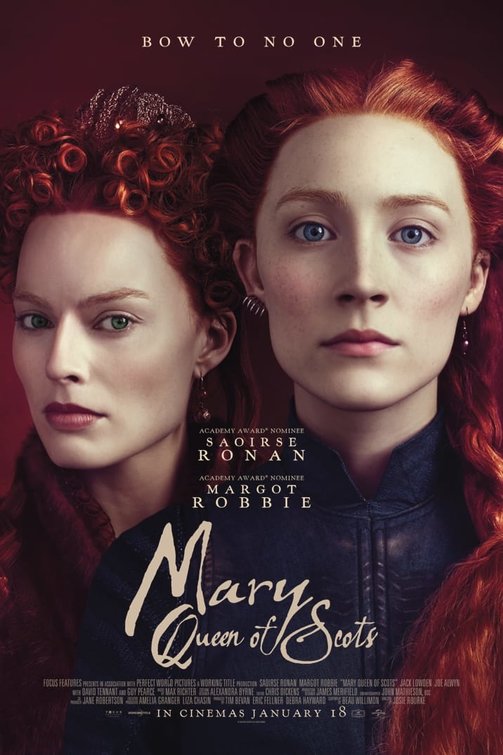
Mary Stuart, the Queen of France, widowed at the age of 18 returns to her homeland of Scotland in 1542 to reclaim her throne. But her lineage means that she also has a claim to be queen of England. Under pressure from her advisers, Elizabeth I must decide whether to act against her dangerous cousin.
After the outlandish The Favourite, we are back in a more conventional portrayal of the monarchy in Mary Queen of Scots. Having said that, about halfway through the film, after a particular revelation, I concluded that I knew what the user reviews on IMDB would concentrate on. Sure enough, when checking afterwards, there were lots of 1 out of 10 reviews by people outraged at the non-Caucasian actors filling some of the supporting roles, and by the homosexuality portrayed. Neither of which, apparently, existed at the time. This isn’t a period of history that I have studied, but it is nonsense to think there were no gay people.
As for the non-white characters, I have no idea if they existed in such elevated circles, but I can’t understand why it bothers people so much. It is a common place practice in the theatre, but maybe cinema is held to a higher standard of truth telling? That also leads onto a key scene in the movie that has annoyed a lot of people: a meeting by the two monarchs, which there is near universal belief never happened.
From my point of view whether it happened or not isn’t as important as whether it makes sense with the story presented. Whilst I think it does, I have to say that it a shame that director Josie Rourke made such a hash of it. Mary trying to find Elizabeth amidst a room of billowing sheets had an air of parody to it. That it also came towards the end of the film, in disappointing final act, meant that the movie fizzled out somewhat.
That is a shame because for the majority of the running time, the story was compellingly told. The political intrigues felt fresh and relevant to our current troubled times, and there are some outstanding performances. Saoirse Ronan, as Mary, shows once again that she is one of the foremost acting talents working today, and Margot Robbie is a good foil. The supporting cast is chock full of reliable performers doing good work, notably Simon Russell Beale, Martin Compston and Guy Pearce. John Mathieson’s cinematography is first rate and I loved Max Richter’s score.
Rating: 7 out of 10